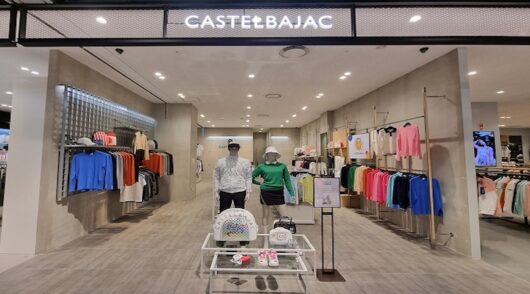While Amazon continues to dominate headlines and keep retail bosses awake at night, retailers in the Asian market have been channelling innovation that blows Amazon’s out of the water, with Alibaba leading the charge.
In lessons from China, Alibaba’s nesting ground, the impact of poor legacy – from IT to digital penetration and traditional retail infrastructure – has paved the way for innovation. This is part of the reason the company is leading the market.
China’s population is also much more open to new ways of shopping and technology. This is seen clearly in China’s vehement uptake of mobile payments. According to eMarketer, 77.5 per cent of all smartphone users in China used mobile payments this year, compared to just 22.2 per cent of smartphone users in the UK.
Alibaba has recognised the opportunity and built an empire on it.
‘New Retail’
Alibaba’s ‘New Retail’ proposition is breaking new ground. Its entry into real estate and establishment of Hema supermarkets has leveraged digital technologies to blend the online and offline worlds into a single, immersive shopping experience – not necessarily a new idea, but one it does arguably does better than others. Rather than paying lip service to technology, it has properly invested. Its back-end infrastructure, including servers for storing vast quantities of data – and robot-managed distribution centres, has helped it create these innovative, data-driven stores. As well as personalising the shopper experience through previous purchase history, its intelligent use of shopper data also enables auto-replenishment (ordering and delivery) of household purchasing.
In Hema stores, everything happens through the customer’s smartphone. Consumers shop, order groceries for home delivery and eat in-store, all via a dedicated Hema app, which is linked to Alipay.
Inside the store, consumers can scan barcodes to purchase items and make payments, all via the app, which also enables users to order fresh food – including live seafood – to be cooked and eaten in-store. The app uses Alibaba’s big data to create personalised recommendations, like curating fresh food and products tailored to consumers locations. This frictionless shopping experience is bridging the physical and digital worlds within the Alibaba brand experience.
Globally, retailers can learn from the emotional appeal of Alibaba’s stores. They ooze customer centricity. The brand name itself (Hema Xiansheng) means “boxed/packaged freshness and liveliness”. In-store restaurants build a sense of community and bar-code displays reveal the origin of every product. This puts a guarantee of quality and brand trust right at the heart of the experience, setting it apart from competitors on and offline.

Revolutionising in-store payments
With more than 450 million registered users worldwide, Alibaba’s payment wallet Alipay is widely used in China. According to a study by iResearch, Alipay has 54 per cent of China’s mobile-payment market. This payment system is at the heart and soul of the behemoth’s retail offering, both online and offline. Not only does it allow consumers to buy retail products, but also pay bills, and book plane tickets. It is a full-service e-commerce ecosystem.
Around the world, retailers are catching on to this. In the UK, Tesco recently advanced its mobile payment capabilities with the launch of Pay+ that links directly to the Clubcard loyalty program. This move highlights the effort being made to bring the various components of the Tesco business together to provide a frictionless experience for the customer in-store – but not quite reaching the heady heights of the Alibaba empire.
Making online shopping easy
In most markets, consumers shopping at different e-commerce sites use a variety of different accounts along with separate checkout procedures. In China, however, consumers can use a single Tmall account regardless of what store they are buying from. The platform allows customers to use just one account and the same checkout for shopping at thousands of different retailers, as well as in-store via mobile.
Clunky checkouts are one of the main reasons that more than 83 per cent of online shoppers abandon their purchases, according to research by Optimizely – with payment options, payment processes and filling in data multiple times all cited as reasons for not completing a purchase.
Amazon too has benefitted from its simplified one-click check out to combat basket abandonment. Retailers should constantly ask themselves how they can improve this online checkout experience, or risk losing out to more digitally savvy competitors.
Creating theatre
Alibaba single-handedly created a retail calendar moment, Singles Day, as an antidote to Valentine’s Day. It’s a masterclass in clever marketing.
Singles Day goes far beyond the functional marketing campaigns of online retailers in the western world around Black Friday and Cyber Monday. One journalist described it as “almost like the Academy Awards, a New Year’s Celebration, and the Superbowl all in one”.
Similarly, around the launch of Hema, it launched a pop-up “Seafood Art Exhibition” in Shanghai. In an aquarium-style glass house, expensive seafood products such as Boston lobster and Alaskan king crab were available, enforcing its “fresh and lively” brand to discerning Chinese consumers.
Designing theatrical brand experiences is an opportunity for all retailers. In the mundane routines of our everyday lives, including the daily or weekly food shop, experiences that stand out are more likely to drive footfall, sales and loyalty.

Shaping the future
Alibaba is a hugely successful retailer – with revenues of $83 billion – precisely because it is meeting the needs of the changing shopper profile. It has transformed the traditional retail buying to an immersive and personalised shopping experience, with technology and mobile ensuring that the purchase journey is never more than one click away.
As the use of mobile payments increases across the world, Alibaba’s mobile innovations, which have made consumers’ lives easier and added value to their shopping experience, will become commonplace.
When retailers put customer behaviour and needs at the heart of their strategy, this data can be used to personalise and enhance shoppers experience and drive brand loyalty and growth in a very powerful way. By following Alibaba’s example, they will shape the future of shopping.
This feature originally appeared as Lessons from China in the Winter issue of Inside Retail Hong Kong’s magazine edition, available by subscription in digital or print versions.
Lessons from China: how Alibaba built an empire on an opportunity






